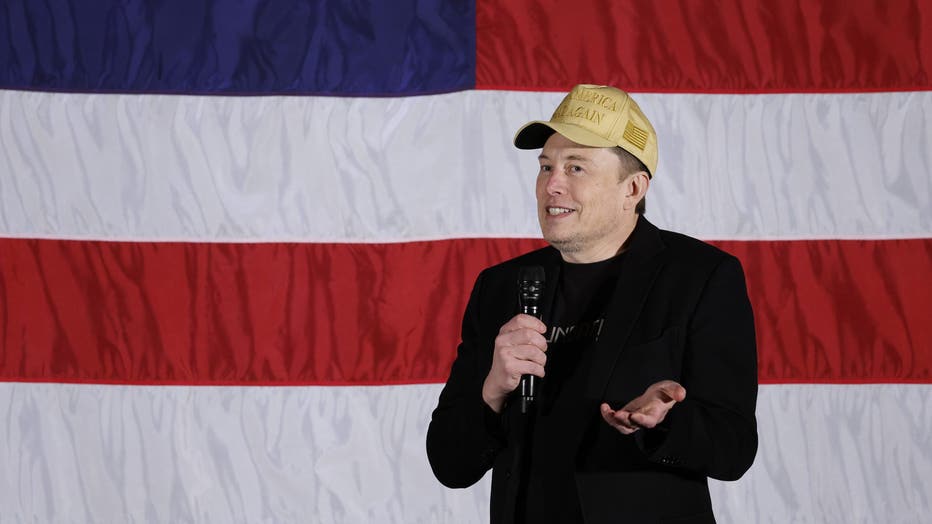Elon Musk's petition giveaway promises $1 million a day to voters: Is it legal?
Elon Musk’s pledge of $1 million for voters who sign his petition to back the Constitution has raised red flags among election law experts.
Musk, the billionaire founder of Tesla and Space X and owner of X, made the pledge Saturday at a rally to support Donald Trump. He promised to give away $1 million a day until the Nov. 5 election for people who sign his PAC’s petition to support the First Amendment, which protects freedom of speech, and the Second Amendment, with its right "to keep and bear arms." But there’s a catch: you have to be registered to vote to be eligible for the check.

SpaceX and Tesla founder Elon Musk participates in a town hall-style meeting to promote early and absentee voting at Ridley High School on October 17, 2024 in Folsom, Pennsylvania. (Photo by Anna Moneymaker/Getty Images)
Musk has gone all-in on Trump’s candidacy for the White House and has already spent at least $70 million to help elect the former president. He awarded the first $1 million check during an event Saturday in Harrisburg, Pennsylvania, to a man identified as John Dreher.
Watch: Trump works at McDonald's during Pennsylvania visit
It’s not the first offer of cash the organization has made. Musk has posted on X that he would offer people $47 — and then $100 — for referring others to register and signing the petition.
Is Elon Musk’s petition legal?
The giveaway is raising questions and alarms among some election experts who say it is a violation of the law to link a cash handout to signing a petition that also requires a person to be registered to vote.
RELATED: After backlash, Elon Musk's Starlink extends free service for hurricane victims through 2024
Brendan Fischer, a campaign finance lawyer, said the latest iteration of Musk’s giveaway approaches a legal boundary because of the voter registration requirement.
"There would be few doubts about the legality if every Pennsylvania-based petition signer were eligible, but conditioning the payments on registration arguably violates the law," Fischer said in an email.
Rick Hasen, a UCLA Law School political science professor, concurs.
RELATED: Elon Musk could become world's first trillionaire by 2027
"If all he was doing was paying people to sign the petition, that might be a waste of money. But there’s nothing illegal about it," Hasen told The Associated Press. "The problem is that the only people eligible to participate in this giveaway are the people who are registered to vote. And that makes it illegal."
It’s unclear if the Justice Department will investigate.

